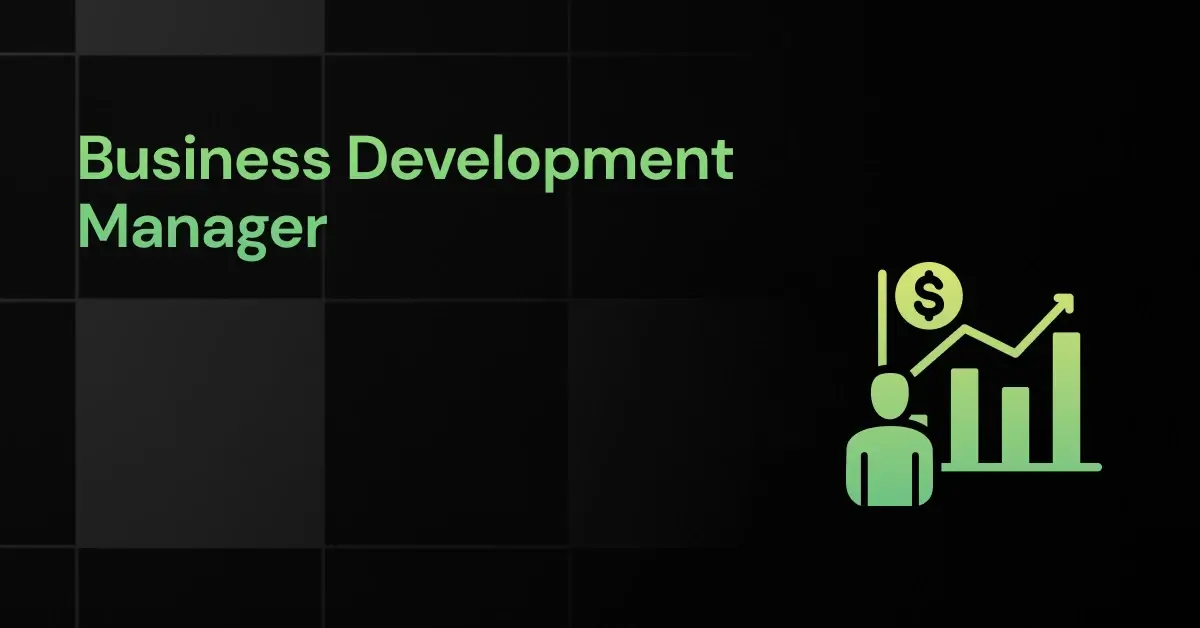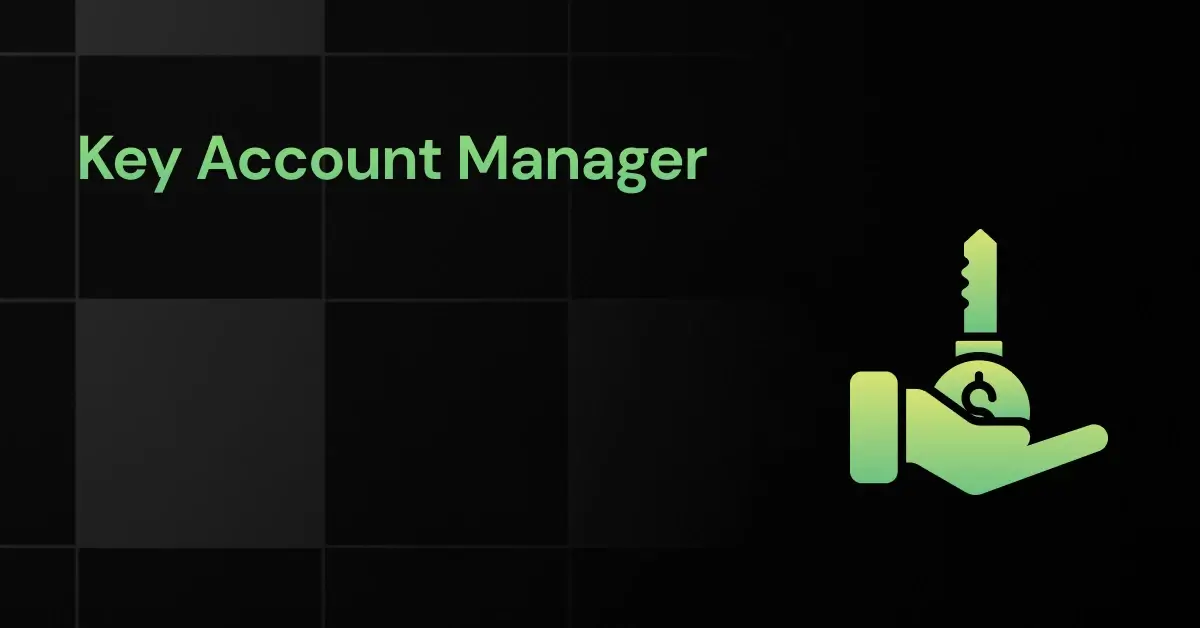Alternative Career Options for Sales Professionals

Are you a Sales Professional considering a career change? The high-pressure targets, the constant need for networking, and the relentless pursuit of meeting quotas can lead to burnout, prompting many sales professionals to seek alternate career options.
Sales Professionals often possess a unique set of skills that are highly transferable and valued across various industries.
In this article, we delve into the diverse and rewarding alternate career options for Sales Professionals, offering a fresh perspective on how your sales expertise can open new doors to exciting opportunities.
Alternative Career Options for Sales Professionals – Overview
Here’s an overview of alternative career options for Sales Professionals with insights into transition time, starting salaries, and potential for remote work:
| S.No. | Career Options | Transition Time | Avg Starting Salary Per Annum (INR) | Potential for Remote Work |
|---|---|---|---|---|
| 1 | Digital Marketing Specialist | 6-12 months | 4-8 Lakhs | High |
| 2 | Business Analyst | 6-12 months | 5-9 Lakhs | Moderate |
| 3 | Data Scientist | 1-2 years | 6-10 Lakhs | Very High |
| 4 | Business Development Manager | 1-2 years | 6-12 Lakhs | Moderate |
| 5 | Project Manager | 1-2 years | 7-15 Lakhs | Moderate |
| 6 | Market Research Analyst | 6-12 months | 4-8 Lakhs | Moderate |
| 7 | Key Account Manager | 1-2 years | 7-15 Lakhs | Moderate |
| 8 | Client Relationship Manager | 6-12 months | 5-10 Lakhs | Moderate |
| 9 | Public Relations Manager | 1-2 years | 6-12 Lakhs | High |
| 10 | Corporate Trainer | 6-12 months | 4-8 Lakhs | High |
Career Change Options for Sales Professionals – Let’s Find the Alternatives
Below is the list of career change options or alternative employment for Sales professionals:
1. Digital Marketing Specialist
A Digital Marketing Specialist focuses on creating and managing marketing campaigns in the digital space, leveraging online platforms to promote products or services.
This role is a great fit for Sales professionals due to their strong understanding of people management, communication skills, and ability to strategize effectively.
Job Market and Demand:
- The digital marketing industry in India is expected to grow at a compound annual growth rate (CAGR) of 27.42% between 2020 and 2025. (Source: IBEF)
- There is a high demand for digital marketing professionals in India, with over 8,000 job openings listed on major job portals. (Source: Naukri.com)
- The increasing internet penetration and digital literacy in India are contributing to the growth of digital marketing jobs.
Skills and Knowledge Prerequisites:
- Proficiency in SEO and SEM.
- Knowledge of content marketing and social media strategies.
- Skills in data analytics and interpretation.
- Understanding of email marketing and automation tools.
- Familiarity with web design principles and user experience (UX).
Transferable Skills:
- Strong communication and interpersonal skills.
- Analytical thinking and problem-solving abilities.
- Project management and organizational skills.
- Creativity and innovation in developing marketing strategies.
- Ability to work with diverse teams and manage multiple projects.
Starting Salary:
- The average starting salary for a Digital Marketing Specialist in India is approximately between INR 4,00,000 and INR 8,00,000 per annum.
Duration for Transition:
- Transitioning to a Digital Marketing Specialist role may take 6-12 months, depending on the individual’s prior experience and learning pace.
Risk Assessment:
- The primary risks involve keeping up with rapidly changing digital trends and the need for continuous learning and adaptation.
Work Flexibility:
- Digital Marketing roles often offer flexibility, including options for remote work, part-time, full-time, and freelancing opportunities.
Work-Life Balance:
- Digital Marketing Specialists generally have a balanced work-life, with flexibility in work hours depending on project demands.
Career Progression:
- Potential to advance to roles like Digital Marketing Manager or Head of Digital.
- Opportunities to specialize in areas like SEO, SEM, or Social Media Marketing.
Job Stability and Industry Outlook:
- The digital marketing industry is expected to continue growing, offering stable career opportunities.
- With the increasing focus on digital presence, companies are investing more in digital marketing, ensuring job security in this field.
2. Business Analyst
A Business Analyst plays a crucial role in bridging the gap between IT and the business, using data analytics to assess processes, determine requirements, and deliver data-driven recommendations and reports to executives and stakeholders.
This profession aligns well with Sales professionals due to their expertise in organizational structure, process management, and strategic planning.
Job Market and Demand:
- The demand for Business Analysts in India is growing, with over 12,000 job openings currently listed on major job portals. (Source: Naukri.com)
- The role of Business Analysts is becoming increasingly important in India’s IT and business sectors due to digital transformation initiatives.
- The average annual growth rate for Business Analyst positions in India is estimated at around 14%. (Source: Glassdoor)
Skills and Knowledge Prerequisites:
- Proficiency in data analysis and statistical tools.
- Strong understanding of business processes and requirements gathering.
- Knowledge of project management and software development life cycles.
- Ability to create detailed business analysis, outlining problems, opportunities, and solutions.
- Skills in SQL, Excel, and other data management tools.
Transferable Skills:
- Excellent communication and presentation skills.
- Analytical thinking and problem-solving abilities.
- Strong organizational and planning skills.
- Ability to work collaboratively with cross-functional teams.
- Strategic thinking and decision-making capabilities.
Starting Salary:
- The average starting salary for a Business Analyst in India is approximately between INR 5,00,000 and INR 9,00,000 per annum.
Duration for Transition:
- Transitioning to a Business Analyst role may take about 6-12 months, depending on the individual’s background and the specific requirements of the role.
Risk Assessment:
- Risks include adapting to technical aspects of the role and staying updated with the latest business intelligence tools and methodologies.
Work Flexibility:
- Business Analyst roles often provide options for flexible working arrangements, including remote work and varied project-based contracts.
Work-Life Balance:
- Most Business Analysts experience a balanced work-life, with occasional periods of high demand during critical project phases.
Career Progression:
- Opportunities to advance to senior roles like Senior Business Analyst or Business Analysis Manager.
- Potential to specialize in specific industries or technical areas.
Job Stability and Industry Outlook:
- Steady demand for Business Analysts due to the ongoing need for business optimization and digital transformation.
- The role is considered stable with opportunities for growth as businesses increasingly rely on data-driven decision-making.
3. Data Scientist
A Data Scientist is responsible for analyzing and interpreting complex digital data, such as the usage statistics of a website, to assist a company in its decision-making.
This role is particularly suitable for Sales professionals due to their analytical skills, understanding of organizational needs, and ability to derive insights from varied data sources.
Job Market and Demand:
- The demand for Data Scientists in India is rapidly growing, with a significant increase in job openings in the past year. (Source: LinkedIn)
- India is emerging as a major hub for data science professionals, with a projected growth rate of 30% in the data science industry. (Source: Economic Times)
- The increasing reliance on big data analytics across various sectors in India is driving the demand for skilled Data Scientists.
Skills and Knowledge Prerequisites:
- Proficiency in programming languages like Python, R, or Java.
- Strong understanding of machine learning algorithms and statistical methods.
- Experience with data visualization tools and techniques.
- Knowledge of big data platforms like Hadoop or Spark.
- Ability to clean, manage, and process large datasets.
Transferable Skills:
- Analytical and critical thinking skills.
- Problem-solving abilities with a focus on results.
- Effective communication skills to present data insights.
- Attention to detail and accuracy in data analysis.
- Project management skills and the ability to work in a team.
Starting Salary:
- The average starting salary for a Data Scientist in India is approximately between INR 6,00,000 and INR 10,00,000 per annum.
Duration for Transition:
- Transitioning to a Data Scientist role typically takes about 1-2 years, as it often requires additional training or education in data science and related fields.
Risk Assessment:
- Risks include the need for continuous learning to keep up with rapidly evolving technologies and methodologies in data science.
Work Flexibility:
- Data Scientist positions often offer a high degree of flexibility, including remote work options and project-based contracts.
Work-Life Balance:
- Data Scientists generally maintain a good work-life balance, although project deadlines can sometimes lead to periods of higher workload.
Career Progression:
- Potential to advance to senior roles such as Lead Data Scientist or Data Science Manager.
- Opportunities to specialize in niche areas within data science, like machine learning, artificial intelligence, or deep learning.
Job Stability and Industry Outlook:
- The role of a Data Scientist is considered highly stable due to the increasing importance of data-driven decision-making in businesses.
- The data science field is expected to continue growing, offering a secure and dynamic career path.
- With the expansion of digital data, the need for skilled Data Scientists is likely to remain strong across various industries.
4. Business Development Manager



A Business Development Manager focuses on driving business growth by identifying new business opportunities, developing strategic partnerships, and increasing sales and revenue.
This role is well-suited for Sales professionals due to their skills in relationship building, strategic planning, and understanding of organizational dynamics.
Job Market and Demand:
- The demand for Business Development Managers in India is consistently high, with numerous opportunities across various industries. (Source: Naukri.com)
- The role is crucial in the rapidly expanding Indian economy, especially in sectors like IT, healthcare, and e-commerce.
- The growth rate for business development roles in India is estimated at around 10-15% annually. (Source: Economic Times)
Skills and Knowledge Prerequisites:
- Strong sales and negotiation skills.
- Knowledge of market research and analysis.
- Experience in developing and implementing growth strategies.
- Understanding of customer relationship management (CRM) systems.
- Ability to identify new business opportunities and potential partnerships.
Transferable Skills:
- Excellent communication and interpersonal skills.
- Strategic thinking and planning abilities.
- Networking and relationship-building skills.
- Leadership and team management capabilities.
- Adaptability and resilience in a dynamic business environment.
Starting Salary:
- The average starting salary for a Business Development Manager in India is approximately between INR 6,00,000 and INR 12,00,000 per annum.
Duration for Transition:
- Transitioning to a Business Development Manager role may take about 1-2 years, depending on the individual’s experience in sales and strategic planning.
Risk Assessment:
- Risks include the challenge of adapting to a sales-oriented role and the pressure of meeting growth targets and revenue objectives.
Work Flexibility:
- Business Development Manager roles often come with flexibility in terms of work hours and location, including options for remote work and travel.
Work-Life Balance:
- The work-life balance for Business Development Managers can vary, with some periods requiring extensive travel and networking activities.
Career Progression:
- Opportunities to advance to higher management roles such as Director of Business Development or VP of Sales.
- Potential to specialize in specific industries or markets, enhancing expertise and value.
Job Stability and Industry Outlook:
- Business Development Managers play a key role in the growth of companies, making the position stable and in demand.
- The role is expected to remain relevant as businesses continually seek expansion and new market opportunities.
5. Project Manager



A Project Manager is responsible for planning, executing, and overseeing projects to ensure they are completed on time, within budget, and to the required quality standards.
This role is a natural fit for Sales professionals due to their skills in organization, communication, and understanding of team dynamics and company goals.
Job Market and Demand:
- The demand for Project Managers in India is robust, with a significant presence in industries like IT, construction, and manufacturing. (Source: Indeed)
- India’s growing economy and expansion in infrastructure and technology sectors have led to an increased need for skilled Project Managers.
- The job market for Project Managers in India is expected to grow by approximately 15% over the next few years. (Source: Payscale)
Skills and Knowledge Prerequisites:
- Proficiency in project management methodologies (e.g., Agile, Scrum, Waterfall).
- Strong leadership and team management skills.
- Budgeting and resource allocation expertise.
- Risk management and problem-solving abilities.
- Excellent communication and stakeholder management skills.
Transferable Skills:
- Organizational and planning capabilities.
- Ability to motivate and guide teams.
- Conflict resolution and negotiation skills.
- Adaptability to changing project requirements.
- Attention to detail and ability to work under pressure.
Starting Salary:
- The average starting salary for a Project Manager in India is approximately between INR 7,00,000 and INR 15,00,000 per annum.
Duration for Transition:
- Transitioning to a Project Manager role typically takes about 1-2 years, depending on the individual’s prior experience in managing teams and projects.
Risk Assessment:
- Risks include managing complex projects with tight deadlines and coordinating with diverse teams, which can be challenging for those new to the field.
Work Flexibility:
- Project Manager positions often offer a degree of flexibility, including options for remote work and flexible working hours, depending on the project’s nature.
Work-Life Balance:
- Work-life balance for Project Managers can vary, with some periods of high workload during critical phases of project delivery.
Career Progression:
- Opportunities for advancement to senior roles such as Senior Project Manager or Program Manager.
- Potential to specialize in specific types of projects or industries, enhancing career growth prospects.
Job Stability and Industry Outlook:
- The role of a Project Manager is considered stable due to the ongoing need for effective project delivery across various sectors.
- The demand for skilled Project Managers is expected to remain strong, driven by the growth in sectors like IT, construction, and healthcare.
6. Market Research Analyst



A Market Research Analyst is tasked with gathering and analyzing data on market conditions, consumer behaviors, and competitive landscapes to inform business strategies.
This role aligns well with Sales professionals due to their skills in data analysis, understanding of organizational objectives, and ability to derive insights from complex information.
Job Market and Demand:
- The demand for Market Research Analysts in India is growing, driven by businesses’ need to understand rapidly changing market trends. (Source: Naukri.com)
- The rise of digital marketing and e-commerce in India has further amplified the need for in-depth market analysis.
- The job market for Market Research Analysts is expected to grow by about 20% in the next few years, reflecting the increasing importance of data-driven decision-making. (Source: Economic Times)
Skills and Knowledge Prerequisites:
- Proficiency in data analysis and statistical software.
- Strong understanding of market research methodologies.
- Ability to interpret large sets of data and turn them into actionable insights.
- Knowledge of current market trends and consumer behavior.
- Experience with survey design and analysis.
Transferable Skills:
- Analytical thinking and problem-solving abilities.
- Effective communication skills for presenting findings.
- Attention to detail in data collection and analysis.
- Project management and organizational skills.
- Creativity in developing research methodologies and interpreting data.
Starting Salary:
- The average starting salary for a Market Research Analyst in India is approximately between INR 4,00,000 and INR 8,00,000 per annum.
Duration for Transition:
- Transitioning to a Market Research Analyst role may take about 6-12 months, depending on the individual’s background in data analysis and market research.
Risk Assessment:
- Risks include the need to constantly update skills and knowledge to keep pace with changing market trends and data analysis technologies.
Work Flexibility:
- Market Research Analyst roles often provide flexibility in terms of work location and hours, including options for remote work and project-based assignments.
Work-Life Balance:
- Market Research Analysts generally maintain a good work-life balance, although there may be periods of higher workload during major research projects.
Career Progression:
- Opportunities to advance to senior roles such as Senior Analyst or Research Manager.
- Potential to specialize in specific industries or types of market research, enhancing career growth prospects.
Job Stability and Industry Outlook:
- The role of a Market Research Analyst is considered stable due to the ongoing need for market insights in business planning.
- The demand for skilled analysts is expected to remain strong, particularly in sectors like FMCG, IT, and healthcare.
7. Key Account Manager



A Key Account Manager specializes in managing and nurturing a company’s most important client relationships.
This role is an excellent match for Sales professionals, leveraging their skills in communication, relationship management, and strategic planning to maintain and grow key business partnerships.
Job Market and Demand:
- The demand for Key Account Managers in India is strong, especially in sectors like IT, telecommunications, and FMCG. (Source: LinkedIn)
- With the growing emphasis on customer retention and personalized service, the role is becoming increasingly vital.
- The job market for Key Account Managers in India is expected to grow by approximately 12-18% in the coming years. (Source: Glassdoor)
Skills and Knowledge Prerequisites:
- Proficient in customer relationship management and account management strategies.
- Strong negotiation and sales skills.
- Knowledge of the specific industry and market trends.
- Experience in managing large accounts and understanding client needs.
- Ability to develop and execute strategic plans for account growth.
Transferable Skills:
- Excellent communication and interpersonal skills.
- Strategic thinking and problem-solving abilities.
- Organizational skills and attention to detail.
- Leadership and team collaboration capabilities.
- Adaptability to changing client needs and market conditions.
Starting Salary:
- The average starting salary for a Key Account Manager in India is approximately between INR 7,00,000 and INR 15,00,000 per annum.
Duration for Transition:
- Transitioning to a Key Account Manager role may take about 1-2 years, depending on the individual’s experience in client management and industry knowledge.
Risk Assessment:
- Risks include the challenge of maintaining long-term client relationships and the pressure to meet sales targets and account growth objectives.
Work Flexibility:
- Key Account Manager positions often offer a mix of office and field work, with opportunities for remote work and flexible schedules.
Work-Life Balance:
- The work-life balance for Key Account Managers can vary, with some periods requiring extensive travel and client meetings.
Career Progression:
- Opportunities to advance to higher roles such as National Account Manager or Director of Client Services.
- Potential to specialize in managing accounts within specific industries or market segments.
Job Stability and Industry Outlook:
- Key Account Managers play a crucial role in business growth and client retention, making the position stable and in demand.
- The role is expected to remain relevant as businesses continue to focus on building strong, long-term client relationships.
8. Client Relationship Manager



A Client Relationship Manager focuses on building and maintaining strong relationships with clients, ensuring their satisfaction and loyalty.
This role is well-suited for Sales professionals due to their expertise in interpersonal communication, understanding client needs, and maintaining positive relationships.
Job Market and Demand:
- The demand for Client Relationship Managers in India is robust, particularly in sectors like banking, IT services, and consulting. (Source: TimesJobs)
- As businesses increasingly recognize the value of long-term client relationships, the importance of this role continues to grow.
- The job market for Client Relationship Managers in India is projected to expand by around 10-15% in the next few years. (Source: Naukri.com)
Skills and Knowledge Prerequisites:
- Strong skills in client communication and relationship building.
- Knowledge of customer relationship management (CRM) tools and strategies.
- Ability to identify client needs and provide tailored solutions.
- Experience in handling client queries and resolving issues effectively.
- Understanding of the industry-specific trends and client expectations.
Transferable Skills:
- Excellent communication and negotiation skills.
- Empathy and ability to build rapport with clients.
- Problem-solving and conflict resolution abilities.
- Organizational skills and attention to detail.
- Adaptability to changing client requirements and market conditions.
Starting Salary:
- The average starting salary for a Client Relationship Manager in India is approximately between INR 5,00,000 and INR 10,00,000 per annum.
Duration for Transition:
- Transitioning to a Client Relationship Manager role typically takes about 6-12 months, depending on the individual’s prior experience in client-facing roles and industry knowledge.
Risk Assessment:
- Risks include managing diverse client expectations, maintaining high levels of client satisfaction, and navigating complex client issues.
Work Flexibility:
- Client Relationship Manager positions often offer flexibility, including options for remote work, flexible hours, and occasionally travel for client meetings.
Work-Life Balance:
- Work-life balance can vary, with some periods requiring more intensive client engagement and problem-solving.
Career Progression:
- Opportunities for advancement to senior roles such as Senior Client Relationship Manager or Head of Client Services.
- Potential to specialize in managing relationships within specific client segments or industries.
Job Stability and Industry Outlook:
- The role of a Client Relationship Manager is considered stable due to the ongoing need for maintaining and enhancing client relationships across various sectors.
- The demand for skilled Client Relationship Managers is expected to remain strong, driven by businesses’ focus on client retention and personalized service.
9. Public Relations Manager



A Public Relations Manager is responsible for managing the public image and communications of a company or organization.
This role is a natural fit for Sales professionals, as it requires strong communication skills, the ability to manage relationships, and an understanding of how to positively represent an organization’s values and objectives.
Job Market and Demand:
- The demand for Public Relations Managers in India is increasing, particularly in industries like technology, healthcare, and consumer goods. (Source: Indeed)
- With the growing importance of brand image and media presence, companies are investing more in their PR departments.
- The job market for Public Relations Managers in India is expected to grow by about 15-20% in the next few years. (Source: LinkedIn)
Skills and Knowledge Prerequisites:
- Expertise in media relations, press releases, and public speaking.
- Strong writing and editing skills for crafting compelling messages.
- Knowledge of social media and digital marketing strategies.
- Ability to develop and implement PR campaigns and strategies.
- Experience in crisis management and maintaining a positive public image.
Transferable Skills:
- Excellent communication and interpersonal skills.
- Strategic thinking and planning abilities.
- Creativity in developing innovative PR initiatives.
- Leadership skills for managing a PR team.
- Adaptability to rapidly changing media landscapes and public perceptions.
Starting Salary:
- The average starting salary for a Public Relations Manager in India is approximately between INR 6,00,000 and INR 12,00,000 per annum.
Duration for Transition:
- Transitioning to a Public Relations Manager role may take about 1-2 years, depending on the individual’s experience in communications and media relations.
Risk Assessment:
- Risks include managing sensitive information, responding to public crises, and maintaining a consistently positive image in the face of challenges.
Work Flexibility:
- Public Relations Manager roles often offer a mix of office work and external meetings, with some opportunities for remote work and flexible schedules.
Work-Life Balance:
- The work-life balance for Public Relations Managers can be demanding, especially during high-profile events or crisis situations.
Career Progression:
- Opportunities to advance to senior roles such as Director of Public Relations or Communications.
- Potential to specialize in specific industries or types of public relations, such as corporate, government, or non-profit sectors.
Job Stability and Industry Outlook:
- The role of a Public Relations Manager is considered stable due to the ongoing need for effective communication and image management.
- The demand for skilled Public Relations Managers is expected to remain strong, particularly as companies continue to value their public image and media relations.
10. Corporate Trainer



A Corporate Trainer specializes in developing and delivering training programs to enhance employee skills and knowledge within an organization.
This role is particularly suitable for Sales professionals due to their understanding of communication skills, and experience in organizational dynamics.
Job Market and Demand:
- The demand for Corporate Trainers in India is growing, driven by companies investing in employee development and skill enhancement. (Source: Naukri.com)
- Industries such as IT, finance, and healthcare are particularly seeking skilled trainers.
- The job market for Corporate Trainers in India is projected to grow by approximately 10-15% in the coming years. (Source: Glassdoor)
Skills and Knowledge Prerequisites:
- Expertise in designing and implementing effective training programs.
- Knowledge of various training methodologies and tools.
- Skills in assessing training needs and measuring training outcomes.
- Ability to create engaging and interactive learning materials.
- Experience in conducting both in-person and online training sessions.
Transferable Skills:
- Strong communication and presentation skills.
- Organizational and planning abilities.
- Leadership skills for facilitating group training sessions.
- Empathy and understanding of diverse learning styles.
- Adaptability to different training environments and audiences.
Starting Salary:
- The average starting salary for a Corporate Trainer in India is approximately between INR 4,00,000 and INR 8,00,000 per annum.
Duration for Transition:
- Transitioning to a Corporate Trainer role typically takes about 6-12 months, depending on the individual’s prior experience in training and development.
Risk Assessment:
- Risks include the challenge of keeping training relevant and engaging, adapting to different learning needs, and staying updated with industry trends.
Work Flexibility:
- Corporate Trainer positions often offer a mix of office work, remote training sessions, and occasional travel for on-site training.
Work-Life Balance:
- Work-life balance for Corporate Trainers can be well-managed, though preparation and follow-up for training sessions may require additional time.
Career Progression:
- Opportunities to advance to roles such as Training Manager or Director of Learning and Development.
- Potential to specialize in specific areas of training, such as leadership development, technical skills, or diversity and inclusion.
Job Stability and Industry Outlook:
- The role of a Corporate Trainer is considered stable, as continuous employee development is a priority for most organizations.
- The demand for skilled Corporate Trainers is expected to remain strong, reflecting the ongoing need for workforce upskilling and professional development.
Frequently Asked Questions
1. I want to change my career from sales. What career change options are available for me?
If you want to change your career from Sales, some of the career options include:
- Consider roles in Digital Marketing, leveraging skills in persuasive communication and market understanding.
- Explore opportunities in Business Analytics, utilizing analytical skills to interpret market data.
- Transition into Project Management, applying organizational and leadership abilities.
2. How can sales professionals identify which new career path is right for them?
Think about what you like doing in sales, what you’re good at, and what kind of new job needs those skills. Look at different jobs and see which ones fit you best.
3. Which transferable skills from sales are most valuable in other industries?
The transferable skills from Sales are:
- Persuasive Communication: Convincing others effectively.
- Relationship Building: Establishing and maintaining strong professional relationships.
- Negotiation Skills: Achieving favorable outcomes in discussions.
4. How long does it typically take for a sales professional to transition to a new career?
Transitioning to a new career can vary, typically ranging from a few months to a year. The duration depends on the new field’s requirements and the individual’s adaptability and learning pace.
5. What are the risks associated with sales professionals making a career change?
Risks include the challenge of adapting to a new industry or role, the need for additional training or education, and a potential initial decrease in income during the transition period.
6. How stable are the new career options for sales professionals?
Stability of New Career Options for Sales Professionals:
- Many alternative careers offer stable opportunities, especially in growing sectors like digital marketing and data analysis.
- Stability can vary based on industry trends and economic factors.
- Continuous skill development can enhance job security in the new career path.
7. Where can sales professionals find professional advice for a career change?
Sales professionals seeking a career change can find professional advice through Placement Preparation. They offer guidance on career options, skill development, and navigating the job market effectively.
Final Words
The journey from sales to alternative career paths is not just a shift in profession but a gateway to new possibilities. The skills honed in sales – negotiation, communication, client management, and strategic thinking – are assets in numerous fields.
We’ll keep this article updated as new career paths open up for Sales professionals. Think of it as a growing guide that changes with the times, always giving you the latest info on where your Sales skills can take you next. Keep an eye on this space for more updates!
Explore More Alternative Careers for:
Related Posts


How to Answer: Why IT After Chemical Engineering?
Switching from chemical engineering to IT might feel like a big change—after years of working with reactions, processes, and materials, …













